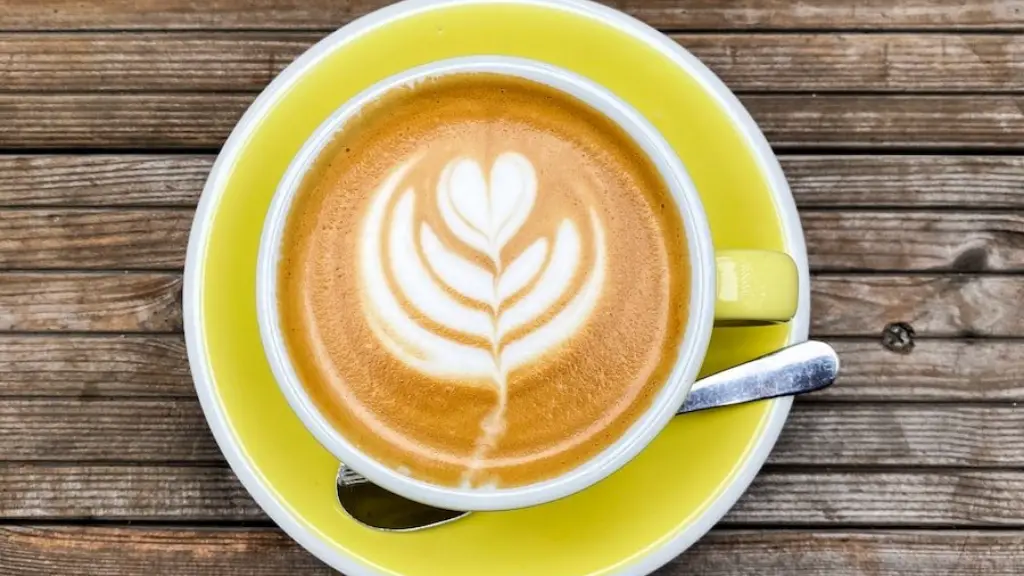Not Drinking Coffee on an Empty Stomach
Digesting coffee on an empty stomach can cause a wide range of issues in both the short and long-term. In this article, we take a look at why it’s best to avoid drinking coffee on an empty stomach.
Background
Coffee is one of the most popular drinks around the world and often enjoyed with breakfast or as a pick-me-up during the day. However, drinking coffee on an empty stomach can have serious health implications. Coffee contains caffeine, which is a natural stimulant known for providing energy and focus. Therefore, drinking coffee on an empty stomach can cause the release of stomach acid, leading to digestive issues like nausea, vomiting, and even stomach ulcers. Additionally, the high doses of caffeine can cause issues with sleep, restlessness, anxiety, and headaches.
Relevant Data
Caffeine can have both positive and negative effects on the human body, depending on the level of intake. Studies have found that having more than 400mg of caffeine a day (the equivalent of four cups of coffee) can result in issues like increased blood pressure and heart rate, decreased concentration, insomnia, and restlessness. Additionally, high levels of caffeine can lead to withdrawal symptoms such as headaches, tiredness, and irritability.
Experts’ Perspectives
According to nutritionist Laura Fisher, it’s best to always pair coffee with food. She explains that “coffee can increase stomach acid which can lead to heartburn, especially when you’re drinking coffee on an empty stomach. It’s best to avoid coffee to make sure your stomach acid doesn’t become overactive.”
Additionally, Dr. Leslie Heinberg, an eating-disorder specialist from the Cleveland Clinic, suggests “it is best to wait 90 minutes or more after eating a meal before drinking coffee to give your body enough time to digest the food.”
Insights and Analysis
It’s important to be aware of the potential risks associated with drinking coffee on an empty stomach. Our bodies need time to metabolize and digest food before we ingest additional stimulants. If we don’t give our bodies enough time to metabolize, coffee can have an adverse effect, leading to stomach issues and other health complications.
It’s also beneficial to be mindful of how much caffeine we are ingesting as well. Caffeine can be beneficial in small doses, providing an energy boost to get through the day. However, too much of it can lead to restlessness, anxiety, and even withdrawal symptoms.
Effects on Sleep
High levels of caffeine can have an adverse effect on the quality of our sleep. According to the Mayo Clinic, caffeine can stay in our systems for up to six hours, which can disrupt our sleep cycles and make it hard to fall asleep. It can also lead to increased heart rate, making it hard to relax and get into a sleep rhythm. Additionally, caffeine can also lead to feeling overly alert, making it hard to wind down and get into a restful state.
Impact on Women’s Health
Drinking coffee on an empty stomach can have an even more pronounced effect on women. According to Healthline, high levels of caffeine can lead to an increased risk of miscarriage, preterm labor, and low birth weight. Additionally, caffeine consumption can lead to increased blood pressure, making it harder for pregnant women to maintain a healthy level of blood pressure and increasing the risk of complications during pregnancy.
Alternatives
For those looking for a natural energy boost, there are several alternatives to coffee. Green tea, for instance, is a great source of natural energy that, unlike coffee, does not have any adverse digestive effects. Additionally, it’s also rich in antioxidants, which can help reduce inflammation and improve overall health. Herbal teas like rooibos tea are also an excellent option, as they contain no caffeine and are a great way to relax and wind down.
Physical Activity
Exercise can be an excellent way to energize and focus without relying on caffeine. Going for a run or a walk can help boost our energy levels and improve mental alertness. Additionally, exercise is also known to release endorphins, the feel-good hormones that put us in a better mood.
Foods and Drinks That Can Boost Energy
There are several foods and drinks that can provide natural energy. Eating a healthy breakfast with whole grains, fruits, and other nutrient-dense foods can provide a sustained energy boost to get through the day. Additionally, nutrient-rich smoothies made with vegetables, fruits, and yogurt can also provide an energy boost. Lastly, drinking plenty of water throughout the day can help keep us energized and alert.
Takeaways
Overall, it’s important to be aware of the potential health implications of drinking coffee on an empty stomach. It’s best to consume it with food and in moderate quantities to avoid any adverse digestive issues. Additionally, there are several natural alternatives to coffee that can provide an energy boost while also powering up our bodies with essential vitamins and minerals. Finally, physical activity and eating nutrient-rich foods can be a great way to provide a sustained energy boost.


